Approaches to How They Behave by W. S. Graham

1
What does it matter if the words
I choose, in the order I choose them in,
Go out into a silence I know
Nothing about, there to be let
In and entertained and charmed
Out of their master’s orders? And yet
I would like to see where they go
Read Poem What does it matter if the words
I choose, in the order I choose them in,
Go out into a silence I know
Nothing about, there to be let
In and entertained and charmed
Out of their master’s orders? And yet
I would like to see where they go
0
This Is a Poem About My Life by Frank Lima

the grapes
remind me of the whales
gathering salt for the ocean
this is a poem about my life
you've interrupted
my life and death schedule
which gives me that poetic look each day
this is a poem about my life
Read Poem remind me of the whales
gathering salt for the ocean
this is a poem about my life
you've interrupted
my life and death schedule
which gives me that poetic look each day
this is a poem about my life
0
Silence for My Father by Deena Metzger

This is the silence around the poem of the death of my father.
This is the silence before the poem.
While my father was dying, the Challenger was exploding on TV
Again and again. I watched it happen. In his hospital room,
I followed his breath. Then it stopped.
This is the silence in a poem about the dying of the father.
We’re burning the earth. We’re burning the sky.
Here is another silence in the middle of the poem about the immolation of the Fathers.
Read Poem This is the silence before the poem.
While my father was dying, the Challenger was exploding on TV
Again and again. I watched it happen. In his hospital room,
I followed his breath. Then it stopped.
This is the silence in a poem about the dying of the father.
We’re burning the earth. We’re burning the sky.
Here is another silence in the middle of the poem about the immolation of the Fathers.
0
Poem “This poem is not addressed to you” by Donald Justice
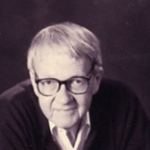
This poem is not addressed to you.
You may come into it briefly,
But no one will find you here, no one.
You will have changed before the poem will.
Even while you sit there, unmovable,
You have begun to vanish. And it does not matter.
The poem will go on without you.
It has the spurious glamor of certain voids.
Read Poem You may come into it briefly,
But no one will find you here, no one.
You will have changed before the poem will.
Even while you sit there, unmovable,
You have begun to vanish. And it does not matter.
The poem will go on without you.
It has the spurious glamor of certain voids.
0
The Circus by Kenneth Koch
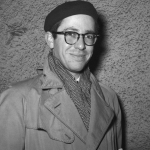
I remember when I wrote The Circus
I was living in Paris, or rather we were living in Paris
Janice, Frank was alive, the Whitney Museum
Was still on 8th Street, or was it still something else?
Fernand Léger lived in our building
Well it wasn’t really our building it was the building we lived in
Next to a Grand Guignol troupe who made a lot of noise
So that one day I yelled through a hole in the wall
Read Poem I was living in Paris, or rather we were living in Paris
Janice, Frank was alive, the Whitney Museum
Was still on 8th Street, or was it still something else?
Fernand Léger lived in our building
Well it wasn’t really our building it was the building we lived in
Next to a Grand Guignol troupe who made a lot of noise
So that one day I yelled through a hole in the wall
0
The Screen of Distance by Barbara Guest

1
On a wall shadowed by lights from the distance
is the screen. Icons come to it dressed in capes
and their eyes reflect the journeys their nomadic
eyes reach from level earth. Narratives are in
the room where the screen waits suspended like
the frame of a girder the worker will place upon
an axis and thus make a frame which he fills with
Read Poem On a wall shadowed by lights from the distance
is the screen. Icons come to it dressed in capes
and their eyes reflect the journeys their nomadic
eyes reach from level earth. Narratives are in
the room where the screen waits suspended like
the frame of a girder the worker will place upon
an axis and thus make a frame which he fills with
0
Ars Poetica by Archibald MacLeish
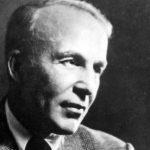
A poem should be palpable and mute
As a globed fruit,
Dumb
As old medallions to the thumb,
Silent as the sleeve-worn stone
Of casement ledges where the moss has grown—
A poem should be wordless
As the flight of birds.
Read Poem As a globed fruit,
Dumb
As old medallions to the thumb,
Silent as the sleeve-worn stone
Of casement ledges where the moss has grown—
A poem should be wordless
As the flight of birds.
0
Something in the Belly by Deena Metzger

I wanted to have a poem and I was pregnant. I was very thin. As if I’d lived on air. A poet must be able to live on air, but a mother must not attempt it. My mother wanted me to buy a set of matching pots, Wearever aluminum, like the ones she had. They were heavy and had well fitting lids so my suppers wouldn’t burn. My husband wanted me to give dinner parties. John F. Kennedy was running for office.
I sensed danger. Kennedy wasn’t against the Bomb or for nuclear disarmament. I joined SANE at its inception. Also Concerned Scientists. I spoke with Linus Pauling and encouraged my husband to help his partner organize Physicians for Social Responsibility.
There was a baby in my belly. I wanted to write poems. I had a crazy idea that a woman could write a real novel, the kind that shook the world. I hallucinated that a woman could be a poet, but she would have to be free. I couldn’t imagine that freedom for myself even though I could see it in Isla Negra when I followed Pablo Neruda. I could see it in the way he walked. Even if he were walking inside a dictatorship, among guns, soldiers and spies, there was nothing between him and his vision. Anything he saw, he was able to take into himself–there was no sight, no image, no vision to which he didn’t feel entitled. In his heart, everything–everything–belonged to him. Pablo Neruda was–more than anything–a poet, and so he was an entitled man.
I was a woman and entitled to nothing. I had nothing except a husband, a rented house, a set of pots, living room furniture, a frenzy of obligations, credit cards, anxious relatives, too many acquaintances, a gift of future diaper service, two telephones, no time to read, a plastic wrapped cookbook of recipes gleaned from the pages of the New York Times, and a hunger, a terrible hunger for the unimaginable, unlimited freedom of being a poet, and a baby in my belly.
I would have called Pablo long distance if I had the courage, if I had the ability to speak Spanish fluently, if we had ever talked about real things. But, what would a man know about a baby in the belly? And what did it matter if there were to be one poet more or less in the world when so many in his country were dying?
I woke up one morning and thought–I can’t have this child. My husband said, “You’ll have to get a job after it’s born so we can buy a house. You’ll need an advanced degree so you can do something.” I thought, I can’t. I have to write poems. My mother found a crib. Someone painted it white. A friend sent a pastel mobile with tame wood animals. I thought about blue curtains, making bedspreads, and abortions.
Pablo was silent. He was walking so far from me, I couldn’t hear him. My husband objected to donating more free medical care to the Black Panthers. I tried to make dolmades from scratch and located grape leaves preserved in brine at the Boys’ Market twenty miles away. I organized a write-in campaign for peace to challenge JFK. My husband thought it would be nice to have teatime with the children and romantic dinners by ourselves. The new formula bottles lined up on the sink like tiny bombs. The U.S. was pursuing over ground testing; I was afraid the radiation would cross the milk barrier. I had a poem in me howling for real life but no language to write in. The fog came in thick, flapping about my feet like blankets unraveling. I became afraid to have a daughter.
I called Pablo Neruda in the middle of the night as he walked underwater by Isla Negra. He moved like a dream porpoise. He seemed pregnant with words. They came out of his penis in long miraculous strings. The sea creatures quivered with joy. I said, “Pablo, I want to know how to bear the child in my belly onto this bed of uranium and I want to know if a woman can a be a poet.” He was large as a whale. He drank the sea and spouted it in glistening odes, black and shiny. I said, “I can’t have this child,” and he laughed as if he had never done anything but carry and birth children.
Read Poem I sensed danger. Kennedy wasn’t against the Bomb or for nuclear disarmament. I joined SANE at its inception. Also Concerned Scientists. I spoke with Linus Pauling and encouraged my husband to help his partner organize Physicians for Social Responsibility.
There was a baby in my belly. I wanted to write poems. I had a crazy idea that a woman could write a real novel, the kind that shook the world. I hallucinated that a woman could be a poet, but she would have to be free. I couldn’t imagine that freedom for myself even though I could see it in Isla Negra when I followed Pablo Neruda. I could see it in the way he walked. Even if he were walking inside a dictatorship, among guns, soldiers and spies, there was nothing between him and his vision. Anything he saw, he was able to take into himself–there was no sight, no image, no vision to which he didn’t feel entitled. In his heart, everything–everything–belonged to him. Pablo Neruda was–more than anything–a poet, and so he was an entitled man.
I was a woman and entitled to nothing. I had nothing except a husband, a rented house, a set of pots, living room furniture, a frenzy of obligations, credit cards, anxious relatives, too many acquaintances, a gift of future diaper service, two telephones, no time to read, a plastic wrapped cookbook of recipes gleaned from the pages of the New York Times, and a hunger, a terrible hunger for the unimaginable, unlimited freedom of being a poet, and a baby in my belly.
I would have called Pablo long distance if I had the courage, if I had the ability to speak Spanish fluently, if we had ever talked about real things. But, what would a man know about a baby in the belly? And what did it matter if there were to be one poet more or less in the world when so many in his country were dying?
I woke up one morning and thought–I can’t have this child. My husband said, “You’ll have to get a job after it’s born so we can buy a house. You’ll need an advanced degree so you can do something.” I thought, I can’t. I have to write poems. My mother found a crib. Someone painted it white. A friend sent a pastel mobile with tame wood animals. I thought about blue curtains, making bedspreads, and abortions.
Pablo was silent. He was walking so far from me, I couldn’t hear him. My husband objected to donating more free medical care to the Black Panthers. I tried to make dolmades from scratch and located grape leaves preserved in brine at the Boys’ Market twenty miles away. I organized a write-in campaign for peace to challenge JFK. My husband thought it would be nice to have teatime with the children and romantic dinners by ourselves. The new formula bottles lined up on the sink like tiny bombs. The U.S. was pursuing over ground testing; I was afraid the radiation would cross the milk barrier. I had a poem in me howling for real life but no language to write in. The fog came in thick, flapping about my feet like blankets unraveling. I became afraid to have a daughter.
I called Pablo Neruda in the middle of the night as he walked underwater by Isla Negra. He moved like a dream porpoise. He seemed pregnant with words. They came out of his penis in long miraculous strings. The sea creatures quivered with joy. I said, “Pablo, I want to know how to bear the child in my belly onto this bed of uranium and I want to know if a woman can a be a poet.” He was large as a whale. He drank the sea and spouted it in glistening odes, black and shiny. I said, “I can’t have this child,” and he laughed as if he had never done anything but carry and birth children.
0
Afternoon Happiness by Carolyn Kizer

for John At a party I spy a handsome psychiatrist,
And wish, as we all do, to get her advice for free.
Read Poem And wish, as we all do, to get her advice for free.
0
Fresh Air by Kenneth Koch

I
At the Poem Society a black-haired man stands up to say
“You make me sick with all your talk about restraint and mature talent!
Haven’t you ever looked out the window at a painting by Matisse,
Or did you always stay in hotels where there were too many spiders crawling on your visages?
Did you ever glance inside a bottle of sparkling pop,
Or see a citizen split in two by the lightning?
I am afraid you have never smiled at the hibernation
Read Poem At the Poem Society a black-haired man stands up to say
“You make me sick with all your talk about restraint and mature talent!
Haven’t you ever looked out the window at a painting by Matisse,
Or did you always stay in hotels where there were too many spiders crawling on your visages?
Did you ever glance inside a bottle of sparkling pop,
Or see a citizen split in two by the lightning?
I am afraid you have never smiled at the hibernation
0
Psychoanalysis: An Elegy by Jack Spicer
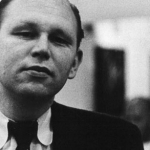
What are you thinking about?
I am thinking of an early summer.
I am thinking of wet hills in the rain
Pouring water. Shedding it
Down empty acres of oak and manzanita
Down to the old green brush tangled in the sun,
Greasewood, sage, and spring mustard.
Or the hot wind coming down from Santa Ana
Read Poem I am thinking of an early summer.
I am thinking of wet hills in the rain
Pouring water. Shedding it
Down empty acres of oak and manzanita
Down to the old green brush tangled in the sun,
Greasewood, sage, and spring mustard.
Or the hot wind coming down from Santa Ana
0
La Belle Dame sans Merci: A Ballad by John Keats

Highlight Actions Enable or disable annotations
Read Poem 0
The Answer by Countess of Winchilsea Anne Finch

Highlight Actions Enable or disable annotations
Read Poem 0
Wildflowers by Richard Howard
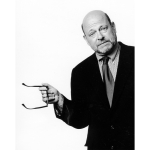
for Joseph Cady
Camden, 1882 Is it raining, Mary, can you see?
Read Poem Camden, 1882 Is it raining, Mary, can you see?
0
A Poem for Painters by John Wieners
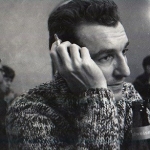
Our age bereft of nobility
How can our faces show it?
I look for love.
My lips stand out
dry and cracked with want
of it.
Oh it is well.
My poem shall show the need for it.
Read Poem How can our faces show it?
I look for love.
My lips stand out
dry and cracked with want
of it.
Oh it is well.
My poem shall show the need for it.
0
Some San Francisco Poems: Sections 5-10 by George Oppen

5
THE TRANSLUCENT MECHANICS
Combed thru the piers the wind
Moves in the clever city
Not in the doors but the hinges
Finds the secret of motion
As tho the hollow ships moved in their voices, murmurs
Flaws
Read Poem THE TRANSLUCENT MECHANICS
Combed thru the piers the wind
Moves in the clever city
Not in the doors but the hinges
Finds the secret of motion
As tho the hollow ships moved in their voices, murmurs
Flaws
0
Dancing on the Grave of a Son of a Bitch by Diane Wakoski

Foreword to “Dancing on the Grave of a Son of a Bitch”
This poem is more properly a “dance poem” than a song or chant because the element of repetition is created by movements of language rather than duplicating words and sounds. However, it is in the spirit of ritual recitation that I wrote it/ a performance to drive away bad spirits perhaps.
The story behind the poem is this: a man and woman who have been living together for some time separate. Part of the pain of separation involves possessions which they had shared. They both angrily believe they should have what they want. She asks for some possession and he denies her the right to it. She replies that she gave him money for a possession which he has and therefore should have what she wants now. He replies that she has forgotten that for the number of years they lived together he never charged her rent and if he had she would now owe him $7,000.
She is appalled that he equates their history with a sum of money. She is even more furious to realize that this sum of money represents the entire rent on the apartment and implies that he should not have paid anything at all. She is furious. She kills him mentally. Once and for all she decides she is well rid of this man and that she shouldn’t feel sad at their parting. She decides to prove to herself that she’s glad he’s gone from her life. With joy she will dance on all the bad memories of their life together.
Read Poem This poem is more properly a “dance poem” than a song or chant because the element of repetition is created by movements of language rather than duplicating words and sounds. However, it is in the spirit of ritual recitation that I wrote it/ a performance to drive away bad spirits perhaps.
The story behind the poem is this: a man and woman who have been living together for some time separate. Part of the pain of separation involves possessions which they had shared. They both angrily believe they should have what they want. She asks for some possession and he denies her the right to it. She replies that she gave him money for a possession which he has and therefore should have what she wants now. He replies that she has forgotten that for the number of years they lived together he never charged her rent and if he had she would now owe him $7,000.
She is appalled that he equates their history with a sum of money. She is even more furious to realize that this sum of money represents the entire rent on the apartment and implies that he should not have paid anything at all. She is furious. She kills him mentally. Once and for all she decides she is well rid of this man and that she shouldn’t feel sad at their parting. She decides to prove to herself that she’s glad he’s gone from her life. With joy she will dance on all the bad memories of their life together.
0
Poetry, a Natural Thing by Robert Duncan
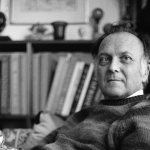
Neither our vices nor our virtues
further the poem. “They came up
and died
just like they do every year
on the rocks.”
The poem
feeds upon thought, feeling, impulse,
to breed itself,
Read Poem further the poem. “They came up
and died
just like they do every year
on the rocks.”
The poem
feeds upon thought, feeling, impulse,
to breed itself,
0

